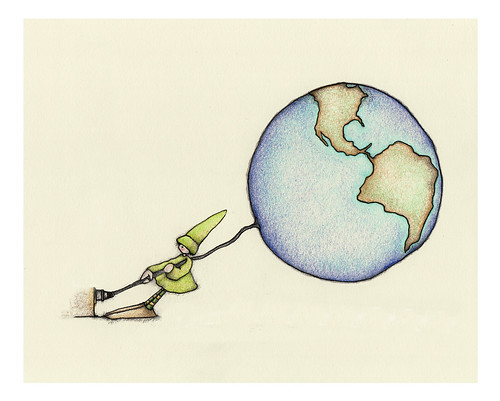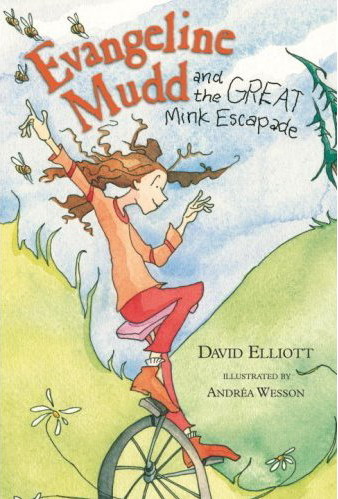|
« February 2008 | Main | April 2008 » March 28, 2008March 25, 2008March 20, 2008Read: Cooked Books by Tyler CowenWhy are we still surprised when “non-fiction” is less than truthful? - From The New Republic Even if you are a Wikipedia fan who thinks the site is usually accurate, you can’t help but feel that there’s an implicit marker on all the content: “Maybe this is correct.” That “maybe” is what sticks in the craws of so many people. Teachers often insist that their students cannot cite Wikipedia. Journalists and academics are embarrassed to admit they use it, and most would not consider writing for it. But if your goal is to improve human understanding, isn’t one of the world’s top websites a better outlet than University of Nebraska Press?
March 19, 2008Watch: Crayon Physics Deluxe from KloonigamesMarch 18, 2008Read: Kingsley Amis on DrinkExcerpt from Bookforum.com; article by Alexander Waugh Amis drank like a proverbial fish from boyhood through adulthood. In his early days, when he was poor and unrecognized, he went for whatever gave the most alcohol for the smallest amount of money. This method is known in England as “drinking the park-bench bottle,” because it is by looking under park benches, where the tramps have left their empties, that one may discover, without having to work it out for oneself, which drink gets one drunkest for the fewest pennies. Young Amis discovered for himself that for twenty-five old pennies he could get himself plastered on three barley wines, a pint of rough cider, and a small whisky. As his means improved, he moved on to beer as his daily tipple and from beer advanced to Scotch whisky, of which he drank so much that by the late ’70s, his monthly bill for the stuff was one thousand pounds. “Scotch whisky is my desert-island drink,” he said. “I mean not only that it is my favorite but that for me it comes nearer than anything else to being a drink for all occasions and all times of day.” Like most writers, however distinguished, Amis was not a particularly rich man. “If I had pots of money,” he used to say, “the only thing I would buy is people to carry me around.”
March 14, 2008Read: Magical Thinking - Psychology TodayEven hard-core skeptics can’t help but find sympathy in the fabric of the universe—and occasionally try to pull its strings. By: Matthew Hutson Last year John Lennon went on tour. He visited, among other locations, Oklahoma City, Waco, New Orleans, and Virginia Tech, spreading a message of peace and love at the sites of tragic events. You may not have recognized him, though, covered in scars and cigarette burns. But to hear him, there would have been no mistaking his presence.
March 13, 2008American Review of Books: The 100 best last lines from NovelsThe American Book Review has made their list of the 100 best last lines from novels available online. Who do you think should have won?
March 10, 2008going green in styleRosaleah Brown (in green pumps) prepared to pedal up Mass. Ave. in Cambridge to a meeting as part of the Green Streets Initiative ~ a grassroots organization of people from Cambridge and surrounding cities who celebrate, promote, and advocate for the use of alternative transportation. (Globe Staff Photo / Mark Wilson)
Read: An unsanitised history of washing by Katherine AshenburgTo modern Westerners life without showers is unimaginable, but mankind somehow survived before the advent of soap and deodorants by Katherine Ashenburg For the modern, middle-class North American, “clean” means that you shower and apply deodorant each and every day without fail. For the aristocratic 17th-century Frenchman, it meant that he changed his linen shirt daily and dabbled his hands in water, but never touched the rest of his body with water or soap. For the Roman in the first century, it involved two or more hours of splashing, soaking and steaming the body in water of various temperatures, raking off sweat and oil with a metal scraper, and giving himself a final oiling - all done daily, in company and without soap.
the view from our living-room windowMarch 4, 2008Literary Fraud: Margaret SeltzerRead the New York Times: Lies and Consequences: Tracking the Fallout of (Another) Literary Fraud By MOTOKO RICH One day after the author of “Love and Consequences” confessed that she had made up the memoir about her supposed life as a foster child in gang-infested South-Central Los Angeles, the focus turned to her publisher and the credulous news organizations that helped publicize what appeared to be a searing autobiography. Follow the sad saga on Gawker. And finally, read Margaret’s Penguin Group interview that would have been part of her media package for the book tour.
Meet Evangeline Mudd
Evangeline Mudd might possibly be the luckiest girl in the world. After all, how many kids have parents who encourage them to swing from the dining room chandeliers or eat peanut butter and jelly sandwiches with their feet? Evangeline’s parents, Merriweather and Magdelana Mudd, are not your typical mother and father. They’re primatologists. Enter the magical world of children’s author, David Elliott.
|







